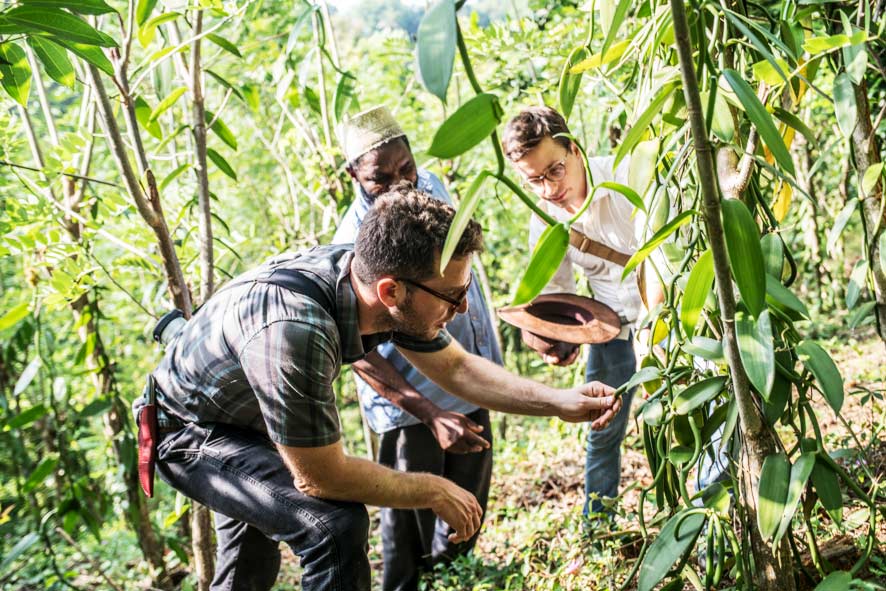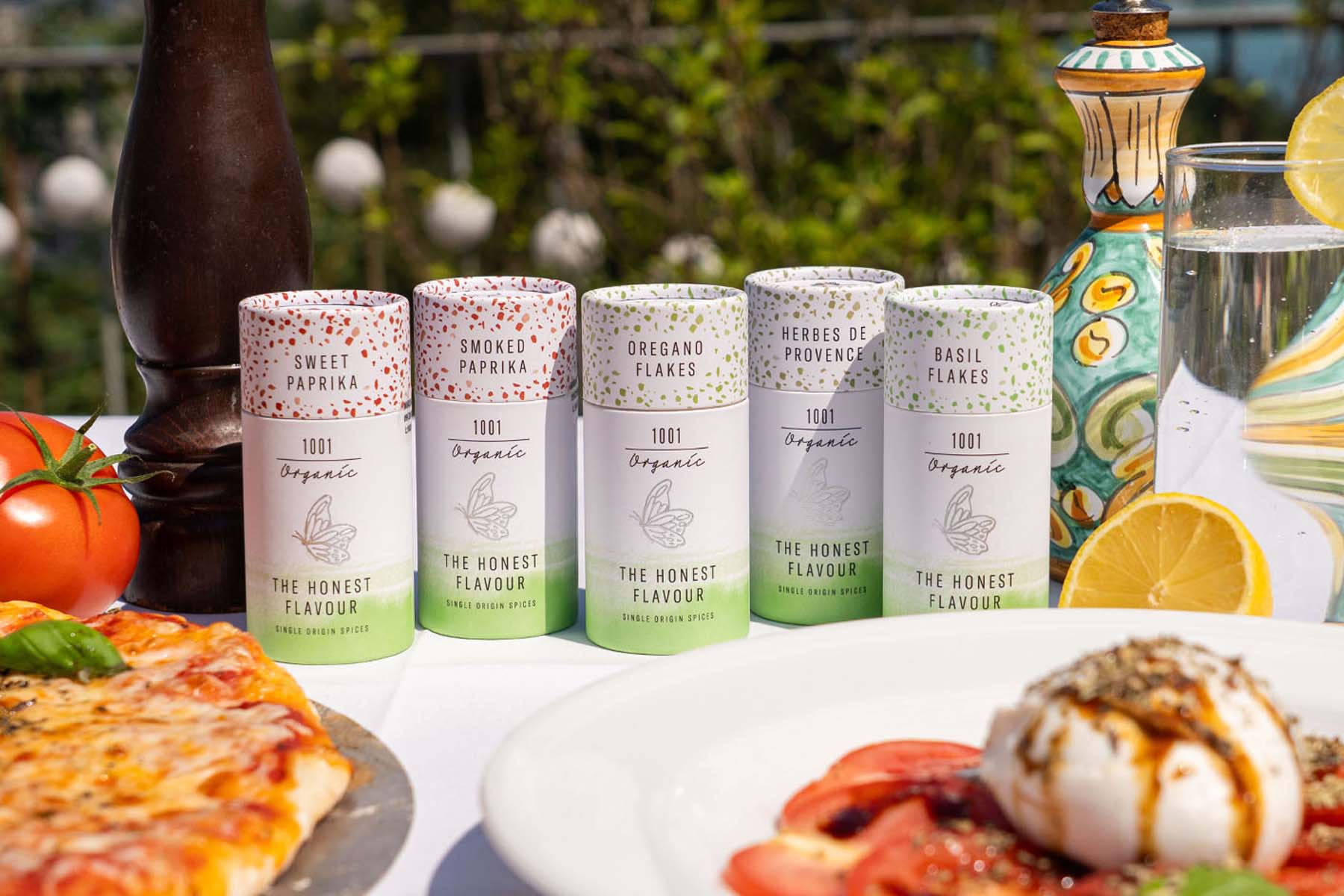We’re often asked whether the vanilla from 1001 Organic is the well-known Bourbon vanilla. Today, we’ll show you why our Zanzibar vanilla – grown in the heart of Pemba – stands out with its intense flavour, ethical sourcing, and traditional craftsmanship.
How Does Vanilla Actually Grow?
Vanilla is a climbing plant that grows up the trunks of trees. Each flower opens for just a few hours per year – a crucial moment that must not be missed. One flower produces one vanilla pod, and each bloom must be pollinated individually by hand. It’s a delicate and labour-intensive process that requires a great deal of skill, care, and experience.
After pollination, the pods take several months to ripen before they are harvested and fermented. During fermentation, each pod is exposed daily to the midday sun over several weeks, then gently massaged to develop its smooth texture and rich aroma. The high vanillin content is what gives vanilla its characteristic flavour profile.
What Makes Our Zanzibar Vanilla So Special?
Our vanilla grows in the tropical spice forests of Pemba, an island in the Zanzibar archipelago. There, experienced smallholder farmers – like Khatib Said – tend their vanilla vines with great dedication. Each pod is processed entirely by hand – from cultivation and pollination to harvesting and fermentation. Unlike the world’s leading vanilla-producing regions, 1001 Organic vanilla is not grown on artificial plantations but climbs naturally using tropical trees for shade and support.
We also set ourselves apart from major market players by refining the vanilla directly with our partner farmers and purchasing it at fair prices – rather than buying green, unfermented pods at rock-bottom rates and refining them ourselves. As a social enterprise, our goal is to create the highest possible value at the smallholder level.
It’s also worth noting that, in contrast to other regions, there is no "vanilla war" in Zanzibar. Thanks to the mixed forest system, our partner farmers are well diversified, and vanilla cultivation remains peaceful and respectful.
Only the very best pods – Grade A vanilla – are selected to go into our jars. These are particularly long, straight, neither too dry nor too moist, and packed with aroma – truly the highest quality available.
What Is Bourbon Vanilla?
Bourbon vanilla originally comes from Mexico and is now mainly grown in Madagascar, Réunion, and the Comoros. Only vanilla pods of the Planifolia variety from these regions are officially allowed to be called “Bourbon vanilla.”
Although Pemba (Zanzibar) is geographically close to the Comoros, our vanilla cannot carry the Bourbon name – but it matches its quality in every way. In fact, this may be exactly what makes Zanzibar (Pemba) vanilla so special – a hidden gem among gourmet circles.
What Can Vanilla Be Used For?
Vanilla pods are intensely aromatic and add a sensual depth to any dish. They’re the secret ingredient behind classic desserts like crème brûlée, vanilla ice cream, or panna cotta. Their rich aroma can elevate any sweet treat into something truly unforgettable.
To release the full flavour, slice the pod lengthwise, scrape out the seeds, and infuse them into warm liquids like milk, cream, or batter. The pod itself can still be used afterwards – to make syrup or vanilla sugar, for instance. Surprisingly, vanilla also pairs beautifully with savoury dishes such as fish, vegetables, or exotic sauces, lending an unexpected depth of flavour.
Triple Vanilla Power from Zanzibar
In our online shop, you’ll find three exclusive vanilla products that showcase exceptional quality and bold aroma:
Vanilla Pods – For the ultimate vanilla experience to elevate your creations.
Pemba Vanilla Powder – A must-have in every kitchen, made from the tropical forests of Pemba.
Gourmet Vanilla Essence – Perfect for enhancing desserts and as a sugar alternative.
Fair, Direct & Sustainable – Vanilla Products from 1001 Organic
With every purchase of 1001 Organic vanilla, you’re supporting small-scale farmers in Pemba and promoting sustainable agriculture. Our vanilla is more than just a spice – it’s a contribution to fairness and future opportunities on the ground.






